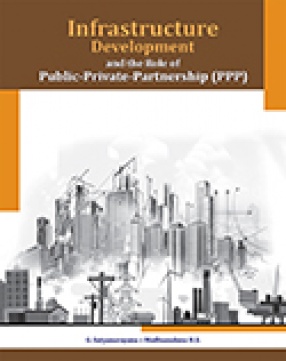Infrastructure Development and the Role of Public-Private-Partnership (PPP)
Infrastructure is generally defined as the physical framework of facilities through which goods and services are provided to the public. Its linkages to the economy are multiple and complex, because it affects production and consumption directly, creates positive and negative spillover effects (externalities), and involves large flows of expenditure. Generically, it has the following distinct components: (a) energy (electricity, coal, petroleum and natural gas, renewable energy sources and atomic power for civil use), (b) transport (railways, roads and road transport, ports and shipping and civil aviation), (c) telecommunications and information technology, (d) special economic zones (SEZs), (e) harnessing water resources and irrigation, (f) rural infrastructure (housing, transport, communications, water supply and sanitation) and (g) urban infrastructure (housing, transport, slum clearance/development, water supply, sanitation and sewerage and solid waste management).
Till recently, as the government implemented and financed the bulk of infrastructure outlays, all the attendant project risks were also borne by the government. Resource mobilisation, mainly domestic, was through pre-emption of funds from banks and insurance companies backed by issue of dated securities. Foreign funds—mainly in the form of project-specific aid from bilateral and multilateral sources—supplemented the domestic resources. Hence, infrastructure financing was relatively simple and straightforward, but undoubtedly inefficient and lacking accountability.
Public-private-partnership (PPP) is a mode of providing public infrastructure and services by the Government in partnership with the private sector. It is a long-term arrangement between Government and private sector entities for the provision of public utilities and services. In view of the investments made/management provided by private sector entities, there is risk sharing as well as performance-linked payments made by the Government to the private entities. PPP concessions can either be sustained by user charges collected by the concessionaire or through annuity payments made by the Government. In case annuity payments are made, they are typically borne by the Government out of the annual budgetary allocations spread over time and are essentially in the nature of deferred budgetary payments.
Get it now and save 10%
BECOME A MEMBER









Bibliographic information
Madhusudana H.S.